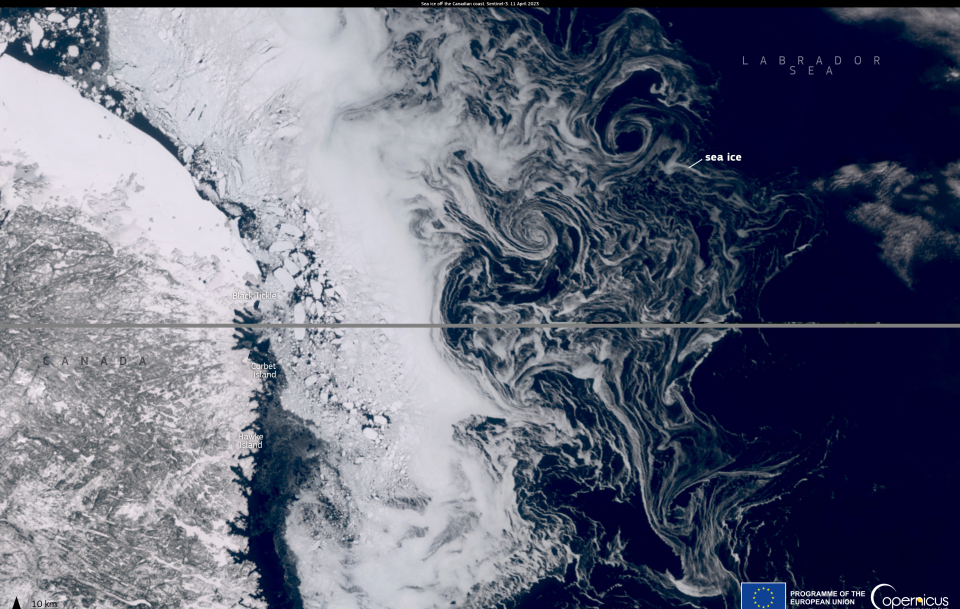Published on 13 April 2023
According to Copernicus Climate Change Service data, the 2023 maximum was reached in early March, with a total extent of 14.5 million km². This is 4% below the 1991-2020 average for the month and the fourth lowest in the satellite era. The Labrador Sea in Canada, visible in this Sentinel-3 image captured on 11 April, recorded one of the lowest concentrations of sea ice. While the Barents Sea and the Svalbard region had below-average sea ice concentrations, the Greenland Sea saw much above-average concentrations due to the atmospheric circulation patterns observed in March.
More details are available on the website of the Copernicus Climate Change Service (C3S).

Source:
The maximum Arctic sea ice extent for March 2023. (2023, April 12). Copernicus Image of the Day.